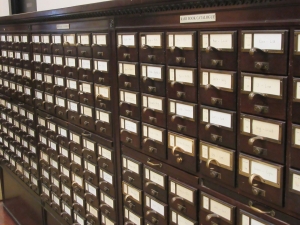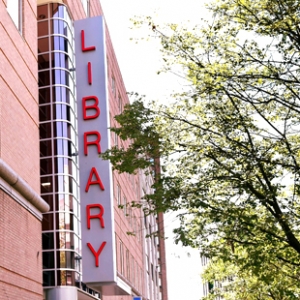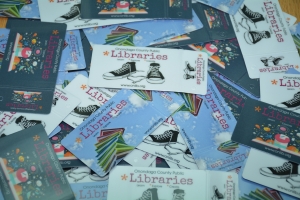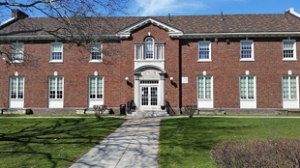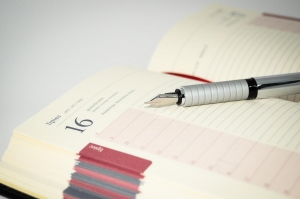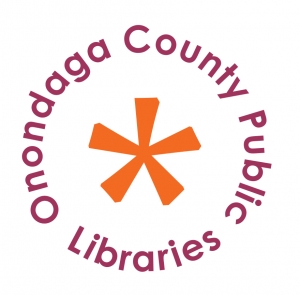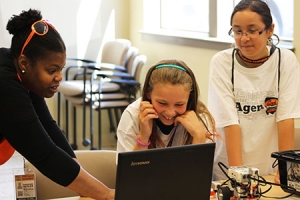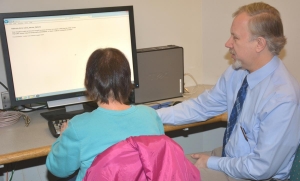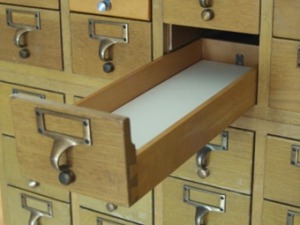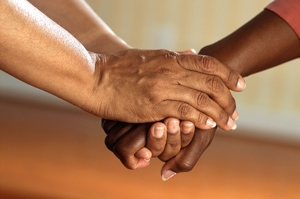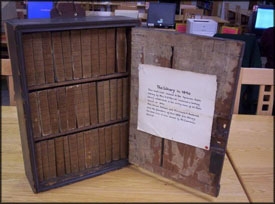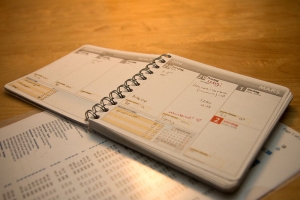LHG FAQs
What are the hours and location of LHG?
Please see the Local History / Genealogy main page for hours and location.
What can Local History/Genealogy look up for me if I cannot come into the library?
The LHG Department accepts phone and e-mail requests for brief, specific searches. Please contact the department for more information at 315-435-1900 or e-mail: lhg@onlib.org
Upon request, LHG can provide a list of local freelance researchers available for hire. Please note, the Onondaga County Public Library does NOT recommend or certify researchers.
Can materials be checked out from Local History / Geneaology?
No, items cannot be checked out. Due to the nature of the collection all items must be used in the department.
Can a non-Onondaga County or non-New York State resident use LHG?
Yes, non-resident OCPL (Onondaga County Public Library) cards may be obtained at the Service Center on the Lobby Level.
Note: Many Local History/Genealogy materials are kept in special storage areas and require a valid OCPL card for use. These items must be requested at the Information Desk with a call slip. These include most printed materials on Syracuse and Onondaga County. Other materials, because of their condition and/or uniqueness are also stored here and require a valid library card. Use of microfiche and Vertical File materials also require call slips and a valid OCPL card.
Are LHG holdings included in the library catalog?
Local History/Genealogy materials are included in the library catalog, and in the Local History/Genealogy card catalog which was closed in 1983. Additional card catalog files include Genealogy, Cemetery and Onondaga Pioneer Files.
What newspapers are available in Local History/Genealogy?
Syracuse newspapers on microfilm run from 1850 to within 3 months of present. Current paper copies of The Post-Standard are on Level 3. There are also some incomplete runs of local newspapers prior to 1850.
Note: For detailed information on local newspaper holdings at the Onondaga County Public Library and at other area libraries, please see Onondaga County (NY) newspapers on microfilm, part of the New York State Newspaper Project. Newspapers listed at Onondaga County Public Library (Syracuse) are part of the Local History/Genealogy collection.
Is there an index to obituaries?
To assist in accessing Syracuse obituaries, there is a multi-volume index to local obituaries from Syracuse newspapers covering 1860 through 1996. Note this index is not complete. The Syracuse Newspaper electronic index can also be used for searching obituaries.
Are there indexes to the Syracuse newspapers?
From 1986 to the present there is a full-text online Syracuse newspaper database (NewsBank) available at the Central Library and other OCPL libraries. We also subscribe to Newspaper Archive.com that indexes many of the historical Syracuse newspapers. This index is available in the library or through our web page databases. The Local History/Genealogy Department also has a newspaper clippings file, organized by subject, covering the 1950s to 2002.
What local city directories are available?
The Syracuse city directories are available from 1844 to present (there are some years that are unavailable). From 1936 to present they are available in paper. From 1862 to 1935 are on microfilm, and 1844 to 1860 on microfiche. Directories up to 1923 have been digitized and are available at Familysearch.com . Search 'Syracuse City Directory' for a listing.
Where can I find Onondaga County vital records?
Copies of birth, marriage and death records for Onondaga County are on file with the Office of Vital Statistics in Syracuse. There is a fee for requesting a search and for copies of records. Search request forms are available at the Office of Vital Statistics and may also be requested by mail.
Birth records are on file from 1873 to the present. However, these records must be on file for seventy-five (75) years before they can be searched for genealogy purposes.
Marriage records are on file from 1873 to 1907. After that, they are kept on file wherever the marriage license was purchased (e.g. office of town clerk, city clerk, etc.). In order for marriage records to be searched for genealogy purposes, both husband and wife must be deceased and proof of death must be submitted along with the request.
Death records are on file from 1873 to the present. However, they must be on file for fifty (50) years before they can be searched for genealogy purposes.
What does the NYS Vital Records Index cover?
While the library does not have official vital records, it does have a microfiche copy of the New York State Vital Records Index created by the New York State Health Department. The index does not include Buffalo or the New York City area. Birth records that are older than 74 years are indexed, and marriage and death records older than 49 years are indexed. An index entry states only the name of the person, date and place of event, and State certificate number. For more information on this index, and a complete listing of what’s available, go to the NYS Vital Records web site.
Are there any fees for LHG searches?
Requests to search and photocopy articles from newspaper microfilm will be done at the rate of $5.00 per item searched, whether or not the article is found. The mailing and handling charge for all requests is an additional $ 1.00 per request. Payment must be received in advance. If a newspaper article can be found on the digital newspaper database, it can be e-mailed without charge.
Can LHG materials be photocopied?
Photocopying of LHG print materials is done by staff only. Requests must be approved by staff; request forms are available at the Information Desk. The cost is $.25 per exposure. A coin operated microform printer is available for patron use.
How do I Search the Catalog and Effectively Find Resources in the Department?
- Search the surnames you're researching, example: <surname> genealogy, or <surname> history
- Search the geographic locations your ancestor's were from, example: Syracuse history, or Oswego genealogy
- Search for records from geographic locations, examples: Marcellus births, Rochester cemetery, Utica church
- Truncate your searches, instead of searching for churches try searching church*
Putting an *asterisk at the end of a word will give you results that include the words church and churches. - Less is more. The fewer keywords you use, the more results you will get. If you're getting too few results, use fewer keywords. If you're getting too many results, use more keywords
|
Closed |
Central Library | View Location and Hours | Central Library on onlib.org |

